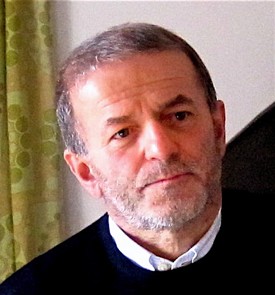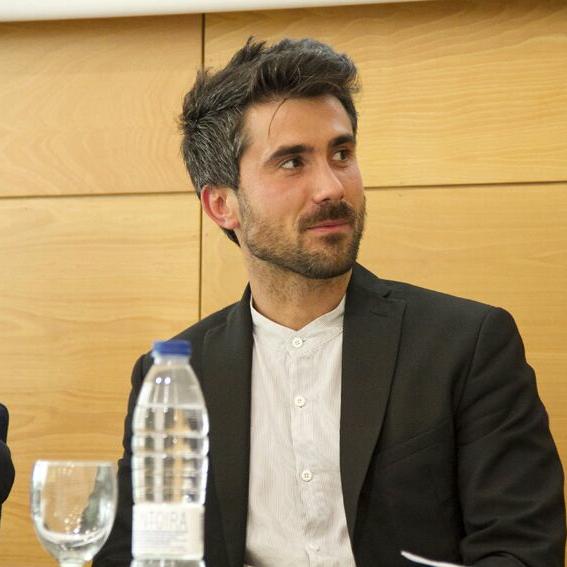Studying at the University of Verona
Here you can find information on the organisational aspects of the Programme, lecture timetables, learning activities and useful contact details for your time at the University, from enrolment to graduation.
Academic calendar
The academic calendar shows the deadlines and scheduled events that are relevant to students, teaching and technical-administrative staff of the University. Public holidays and University closures are also indicated. The academic year normally begins on 1 October each year and ends on 30 September of the following year.
Course calendar
The Academic Calendar sets out the degree programme lecture and exam timetables, as well as the relevant university closure dates..
| Period | From | To |
|---|---|---|
| I semestre | Oct 1, 2019 | Jan 31, 2020 |
| II semestre | Mar 2, 2020 | Jun 12, 2020 |
| Session | From | To |
|---|---|---|
| Sessione invernale d'esame | Feb 3, 2020 | Feb 28, 2020 |
| Sessione estiva d'esame | Jun 15, 2020 | Jul 31, 2020 |
| Sessione autunnale d'esame | Sep 1, 2020 | Sep 30, 2020 |
| Period | From | To |
|---|---|---|
| Festa di Ognissanti | Nov 1, 2019 | Nov 1, 2019 |
| Festa dell'Immacolata | Dec 8, 2019 | Dec 8, 2019 |
| Vacanze di Natale | Dec 23, 2019 | Jan 6, 2020 |
| Vacanze di Pasqua | Apr 10, 2020 | Apr 14, 2020 |
| Festa della Liberazione | Apr 25, 2020 | Apr 25, 2020 |
| Festa del lavoro | May 1, 2020 | May 1, 2020 |
| Festa del Santo Patrono | May 21, 2020 | May 21, 2020 |
| Festa della Repubblica | Jun 2, 2020 | Jun 2, 2020 |
| Vacanze estive | Aug 10, 2020 | Aug 23, 2020 |
Exam calendar
Exam dates and rounds are managed by the relevant Science and Engineering Teaching and Student Services Unit.
To view all the exam sessions available, please use the Exam dashboard on ESSE3.
If you forgot your login details or have problems logging in, please contact the relevant IT HelpDesk, or check the login details recovery web page.
Academic staff
 maurizio.boscaini@univr.it
maurizio.boscaini@univr.it

Vallini Giovanni
 giovanni.vallini@univr.it
giovanni.vallini@univr.it
 045 802 7098; studio dottorandi: 045 802 7095
045 802 7098; studio dottorandi: 045 802 7095
Study Plan
The Study Plan includes all modules, teaching and learning activities that each student will need to undertake during their time at the University.
Please select your Study Plan based on your enrollment year.
1° Year
| Modules | Credits | TAF | SSD |
|---|
1 module between the following1 module among the following1 module among the following1 module between the following1 module between the following2° Year activated in the A.Y. 2020/2021
| Modules | Credits | TAF | SSD |
|---|
1 module between the following1 module among the following1 module between the following| Modules | Credits | TAF | SSD |
|---|
1 module between the following1 module among the following1 module among the following1 module between the following1 module between the following| Modules | Credits | TAF | SSD |
|---|
1 module between the following1 module among the following1 module between the following| Modules | Credits | TAF | SSD |
|---|
Legend | Type of training activity (TTA)
TAF (Type of Educational Activity) All courses and activities are classified into different types of educational activities, indicated by a letter.
Genetics and biotechnology of no-food crops (2019/2020)
Teaching code
4S008296
Teacher
Coordinator
Credits
6
Language
Italian
Scientific Disciplinary Sector (SSD)
AGR/07 - AGRICULTURAL GENETICS
Period
I semestre dal Oct 1, 2019 al Jan 31, 2020.
Learning outcomes
Objective of the course is to provide students with the main knowledge concerning no-food crop species for industrial production. Industrial crops (e.g. cultures for oil production, starch and bioplastics production, biomass for energy) will be examined considering the genetic aspects of response to abiotic stresses and adaptability to environmental conditions. A significant part of the course will treat the techniques, traditional breeding or genetic engineering, to improve useful traits and develop a proper ideotype for the different cultural and production purposes. The course will help students to acquire knowledge in product development from renewable plant resources toward a model of eco-sustainable agriculture.
Program
1. Introduction to the course
1.1 Introduction to the topics of sustainable economy and circular economy
1.2 Differentiation between food and no-food agriculture; importance of the no-food agriculture for the sustainable agriculture.
1.3 Issues related to the development of no-food cultures (environmental impact, use of agricultural resources, water resources, cultural management)
1.4 Situation in the different continents.
2. Genetic improvement
2.1 Targets of genetic improvement: resistance to biotic and abiotic stresses, plant fitness, plant nutrition and productivity.
2.2 Conventional plant breeding and applicable methods (varietal selection, biodiversity and gene pool availability).
2.3 Biotechnologies: use of biotechnological tools (genetic transformation, genome editing).
3. No-food crops
For each category, examples of crop species of economic interest will be considered, and information will be given regarding plant genetics, variety availability, main aspects of genetic improvement and progress on conventional breeding and biotechnological applications.
3.1 Crops for energy and biofuels: Jatropha, etc.
3.2 Oil crops: e.g. Brassicaeae
3.3 Fibre crops: e.g. cotton, flax, canvas, Arundo.
3.4 Short rotation forestry: poplar, eucalyptus, robinia, willow.
3.5 Carbohydrate crops: sugar cane, sugarbeet.
3.6 Speciality crops: production of dyes, biocide, molecules of pharmaceutical and food interest, etc.
4. Corollary
4.1 Considerations on multi-fate of a crop species.
4.2 Valorization of by-products of food crops in circular economy.
Examination Methods
Acquisition of subject cover by the whole course will be verified through oral examination. In addition, student will select and present a paper among those suggested by the lecturer.
Type D and Type F activities
| years | Modules | TAF | Teacher |
|---|---|---|---|
| 1° | Python programming language | D |
Maurizio Boscaini
(Coordinator)
|
Career prospects
Module/Programme news
News for students
There you will find information, resources and services useful during your time at the University (Student’s exam record, your study plan on ESSE3, Distance Learning courses, university email account, office forms, administrative procedures, etc.). You can log into MyUnivr with your GIA login details: only in this way will you be able to receive notification of all the notices from your teachers and your secretariat via email and also via the Univr app.
Graduation
Deadlines and administrative fulfilments
For deadlines, administrative fulfilments and notices on graduation sessions, please refer to the Graduation Sessions - Science and Engineering service.
Need to activate a thesis internship
For thesis-related internships, it is not always necessary to activate an internship through the Internship Office. For further information, please consult the dedicated document, which can be found in the 'Documents' section of the Internships and work orientation - Science e Engineering service.
Final examination regulations
List of thesis proposals
| theses proposals | Research area |
|---|---|
| Valutazione dell'applicazione di nanoparticelle biogeniche per il controllo del cancro batterico del kiwi | AGRICULTURE - AGRICULTURE |
| Valutazione dell'applicazione di nanoparticelle biogeniche per il controllo del cancro batterico del kiwi | APPLICATIONS OF LIFE SCIENCES - APPLICATIONS OF LIFE SCIENCES |
| Valorizzazione di scarti agroindustriali mediante fermentazione termofila per la produzione di acidi organici come precursori chimici di polimeri | Applied biotechnology (non-medical), bioreactors, applied microbiology - Applied biotechnology (non-medical), bioreactors, applied microbiology |
| Valutazione dell'applicazione di nanoparticelle biogeniche per il controllo del cancro batterico del kiwi | Applied biotechnology (non-medical), bioreactors, applied microbiology - Applied biotechnology (non-medical), bioreactors, applied microbiology |
| Immobilizzazione di enzimi d’interesse industriale su nanoparticelle biomimetiche magnetiche | Applied Life Sciences and Non-Medical Biotechnology: Applied plant and animal sciences; food sciences; forestry; industrial, environmental and non-medical biotechnologies, nanobiotechnology, bioengineering; synthetic and chemical biology; biomimetics; bioremediation - Biomimetics |
| Immobilizzazione di enzimi d’interesse industriale su nanoparticelle biomimetiche magnetiche | Applied Life Sciences and Non-Medical Biotechnology: Applied plant and animal sciences; food sciences; forestry; industrial, environmental and non-medical biotechnologies, nanobiotechnology, bioengineering; synthetic and chemical biology; biomimetics; bioremediation - Non-medical biotechnology and genetic engineering (including transgenic organisms, recombinant proteins, biosensors, bioreactors, microbiology) |
| Immobilizzazione di enzimi d’interesse industriale su nanoparticelle biomimetiche magnetiche | Chemical engineering, technical chemistry - Chemical engineering, technical chemistry |
| Effetto delle condizioni operative applicate al processo di digestione anaerobica su produzione di biogas e stabilità del carbonio organico del digestato | Earth System Science: Physical geography, geology, geophysics, atmospheric sciences, oceanography, climatology, cryology, ecology, global environmental change, biogeochemical cycles, natural resources management - Biogeochemistry, biogeochemical cycles, environmental chemistry |
| Influenza dalla variazione stagionale del feedstock sulla produzione di biogas e sulla stabilità del carbonio organico presente nel digestato prodotto | Earth System Science: Physical geography, geology, geophysics, atmospheric sciences, oceanography, climatology, cryology, ecology, global environmental change, biogeochemical cycles, natural resources management - Biogeochemistry, biogeochemical cycles, environmental chemistry |
| Valorizzazione di scarti agroindustriali mediante fermentazione termofila per la produzione di acidi organici come precursori chimici di polimeri | Environmental biotechnology, bioremediation, biodegradation - Environmental biotechnology, bioremediation, biodegradation |
| Bilanci di massa e di materia in digestori anaerobici alimentati con residui agricoli e zootecnici. | Products and Processes Engineering: Product design, process design and control, construction methods, civil engineering, energy processes, material engineering - Chemical engineering, technical chemistry |
| Studio della composizione chimica e della stabilità termica di poliidrossialcanoati ottenuti da diverse matrici ambientali. | Products and Processes Engineering: Product design, process design and control, construction methods, civil engineering, energy processes, material engineering - Chemical engineering, technical chemistry |
| Valorizzazione di scarti agroindustriali mediante fermentazione termofila per la produzione di acidi organici come precursori chimici di polimeri | Products and Processes Engineering: Product design, process design and control, construction methods, civil engineering, energy processes, material engineering - Chemical engineering, technical chemistry |
| Immobilizzazione di enzimi d’interesse industriale su nanoparticelle biomimetiche magnetiche | Products and Processes Engineering: Product design, process design and control, construction methods, civil engineering, energy processes, material engineering - Materials engineering (metals, ceramics, polymers, composites, etc.) |
| Valorizzazione di scarti agroindustriali mediante fermentazione termofila per la produzione di acidi organici come precursori chimici di polimeri | Products and Processes Engineering: Product design, process design and control, construction methods, civil engineering, energy processes, material engineering - Production technology, process engineering |
| Studio delle proprietà di luminescenza di lantanidi in matrici proteiche | Synthetic Chemistry and Materials: Materials synthesis, structure-properties relations, functional and advanced materials, molecular architecture, organic chemistry - Colloid chemistry |
| Multifunctional organic-inorganic hybrid nanomaterials for applications in Biotechnology and Green Chemistry | Synthetic Chemistry and Materials: Materials synthesis, structure-properties relations, functional and advanced materials, molecular architecture, organic chemistry - New materials: oxides, alloys, composite, organic-inorganic hybrid, nanoparticles |
Attendance modes and venues
As stated in the Didactic Regulations, there is no generalised obligation of attendance. Individual lecturers are, however, free to require a minimum number of hours of attendance for eligibilitỳ for the profit exam of the teaching they teach. In such cases, attendance of teaching activities is monitored in accordance with procedures communicated in advance to students.
Part-time enrolment is permitted. Find out more on the Part-time enrolment possibilities page.
The course's teaching activities take place in the Science and Engineering area, which is composed of the buildings of Ca‘ Vignal 1, Ca’ Vignal 2, Ca' Vignal 3 and Piramide, located in the Borgo Roma cluster, and Villa Lebrecht and Villa Eugenia located in the San Floriano di Valpolicella cluster.
Lectures are held in the classrooms of Ca‘ Vignal 1, Ca’ Vignal 2 and Ca' Vignal 3, while practical exercises take place in the teaching laboratories dedicated to the various activities.














